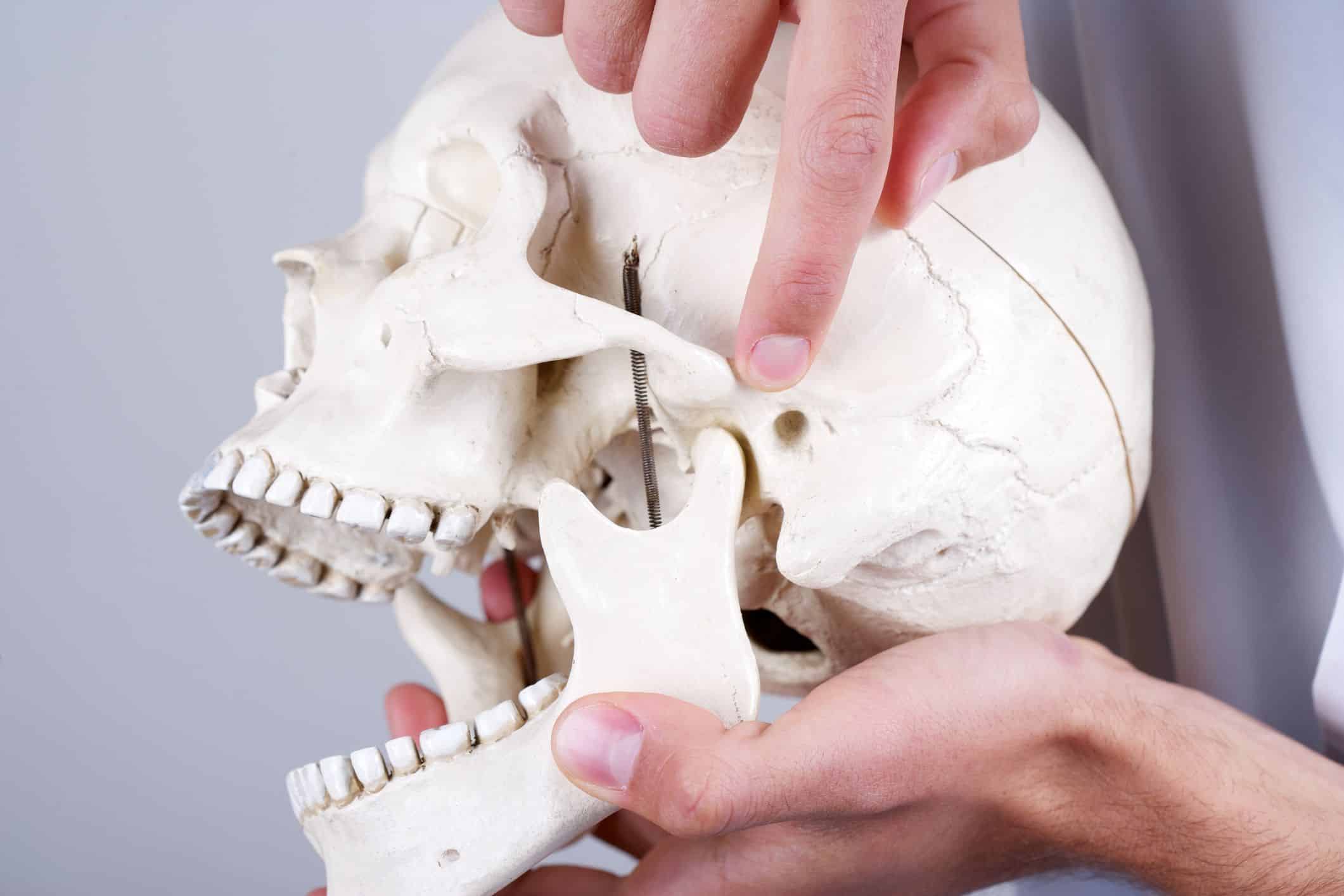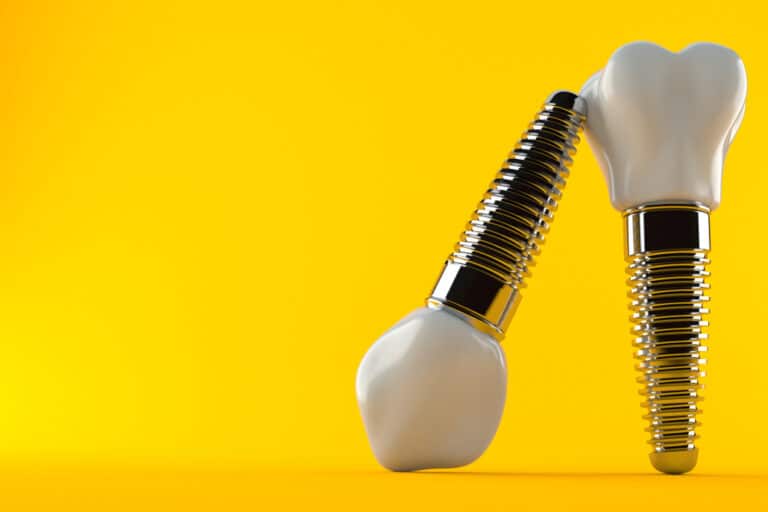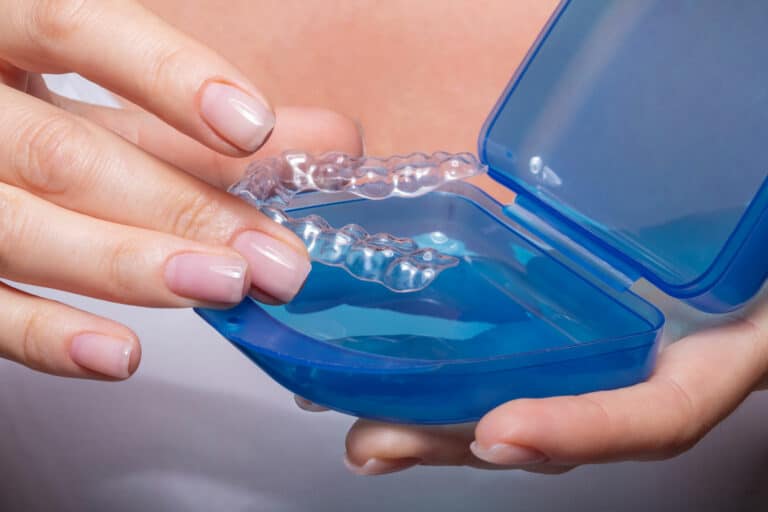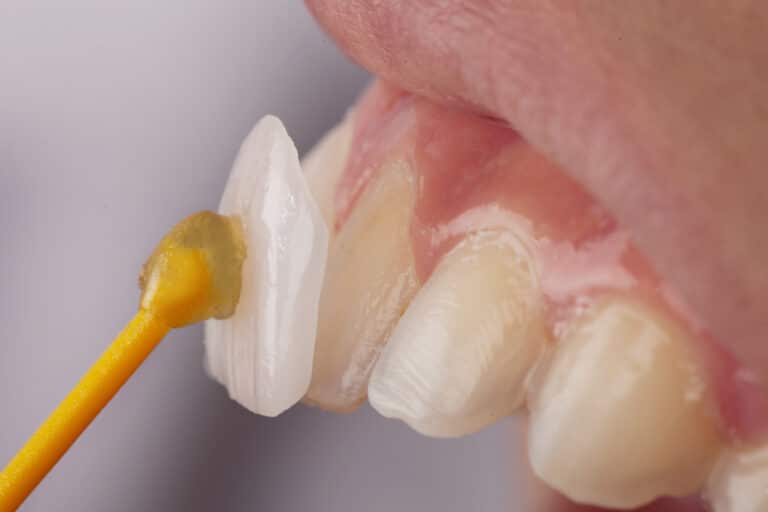Temporomandibular joint disorder (TMJ) can cause severe pain when eating and talking. For some people, the symptoms of TMJ disorder are made worse by sleep apnea, a condition that causes breathing to stop while sleeping.
Treating both TMJ disorder and sleep apnea is essential to relieving jaw pain, improving sleep, and improving quality of life.
At Astoria Dental Group, Drs. Carmen Every-Degel and Clifford Degel offer TMJ and sleep apnea treatment to patients in Queens, NY, Long Island, and throughout NYC, to improve sleep quality and alleviate jaw pain.
About TMJ Disorder
TMJ disorder, sometimes simply called TMJ or TMD, is a condition that affects the movement of the jaw. Movement is impaired and may be affected by problems with the ligaments around the temporomandibular joint, the muscles around the joint, or the joint itself.
When TMJ disorder is present, it can be painful to eat or open and close the mouth. People with TMJ disorder may also experience:
- A clicking or popping sound when they move their jaw
- Jaw locking
- A limited range of jaw movement
- Ear pain
- Chronic headaches
- Pain in and around the jaw
About Sleep Apnea
Sleep apnea is a disorder characterized by recurring disruptions in breathing while sleeping. Sleep apnea is most commonly caused by an obstruction in the upper airway from tissues like the soft palate, muscles in the throat, or tonsils.
Sleep apnea can cause such issues as:
- Loud snoring
- Frequent headaches
- Dry mouth when waking up
- Gasping for air during sleep
- Excessive drowsiness
- Irritability
How Are TMJ Disorder and Sleep Apnea Connected?
While not everyone with TMJ disorder will have sleep apnea and not everyone with sleep apnea will have TMJ disorder, the two disorders are sometimes connected.
When the airway is obstructed by sleep apnea, it’s common for the lower jaw to protrude forward in response. This can put stress on the temporomandibular joints, potentially causing strain on these joints and the surrounding tissues, which in turn can lead to TMJ disorder.
Additionally, the symptoms of TMJ disorder can become worse as a result of poor sleep quality. Sleep apnea can make it difficult to get a restful sleep and increase TMJ disorder symptoms.
Treating TMJ Disorder and Sleep Apnea
Both TMJ disorder and sleep apnea may be treated with an oral appliance fitted by one of our dentists. An oral appliance is worn over the teeth, similar to a mouthguard. Each oral appliance is custom-made to fit comfortably in the mouth while sleeping.
Oral appliances help with sleep apnea by repositioning the lower jaw so that the airway remains open during sleep.
Oral appliances also provide the benefit of reducing strain on the temporomandibular joint, which can help improve the symptoms of TMJ disorder.
Schedule a Consultation
If you are struggling with TMJ disorder and sleep apnea, treatment from Astoria Dental Group may help you get better sleep while also alleviating the symptoms of TMJ disorder. To learn more about your treatment options, we welcome you to send us a message.




